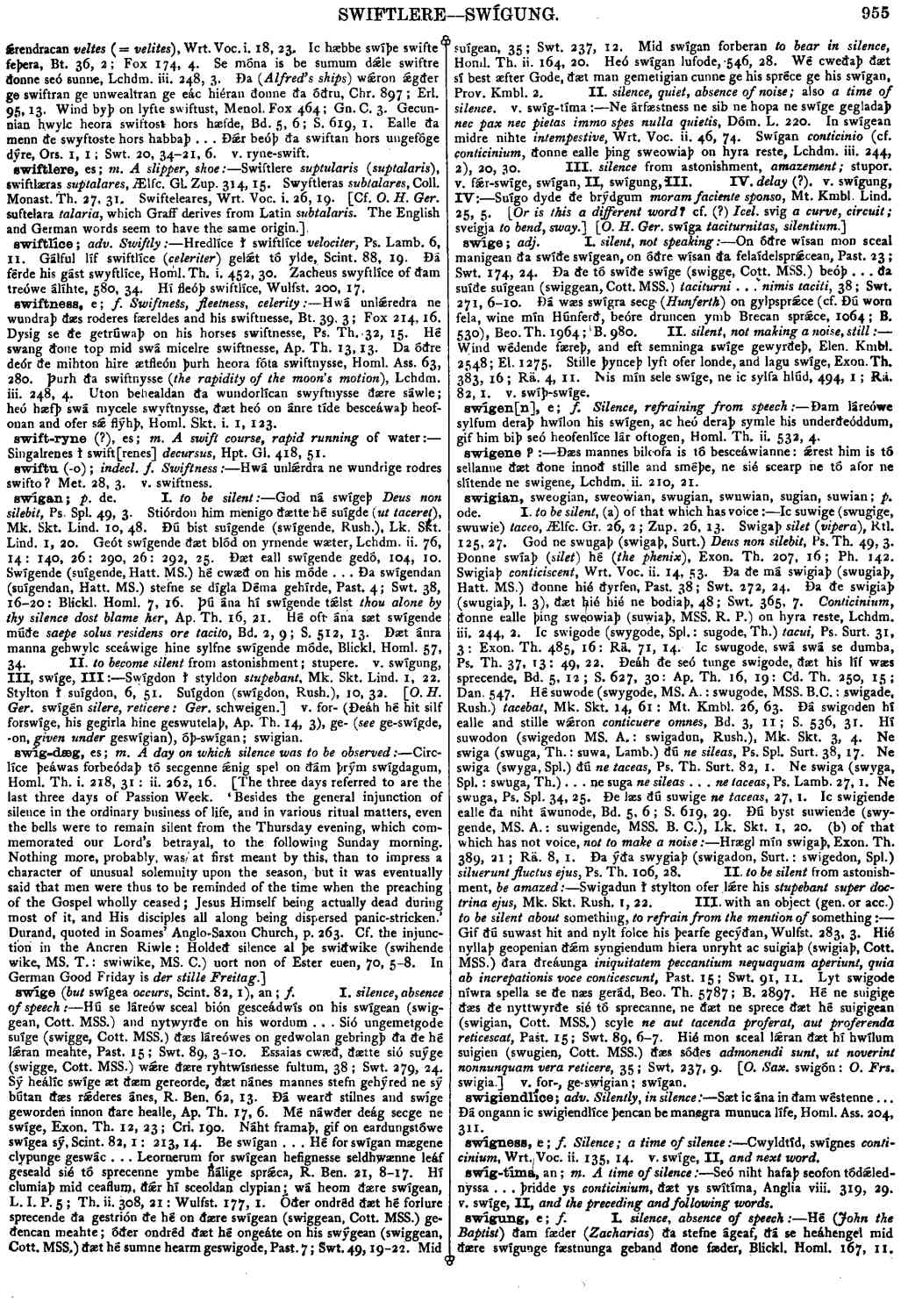swíg-dæg
- noun [ masculine ]
-
Circlíce þeáwas forbeódaþ tó secgenne ǽnig spel on ðám þrým swígdagum,
- Homl. Th. i. 218, 31: ii. 362, 16.
Bosworth, Joseph. “swíg-dæg.” In An Anglo-Saxon Dictionary Online, edited by Thomas Northcote Toller, Christ Sean, and Ondřej Tichy. Prague: Faculty of Arts, Charles University, 2014. https://bosworthtoller.com/29792.
Checked: 0